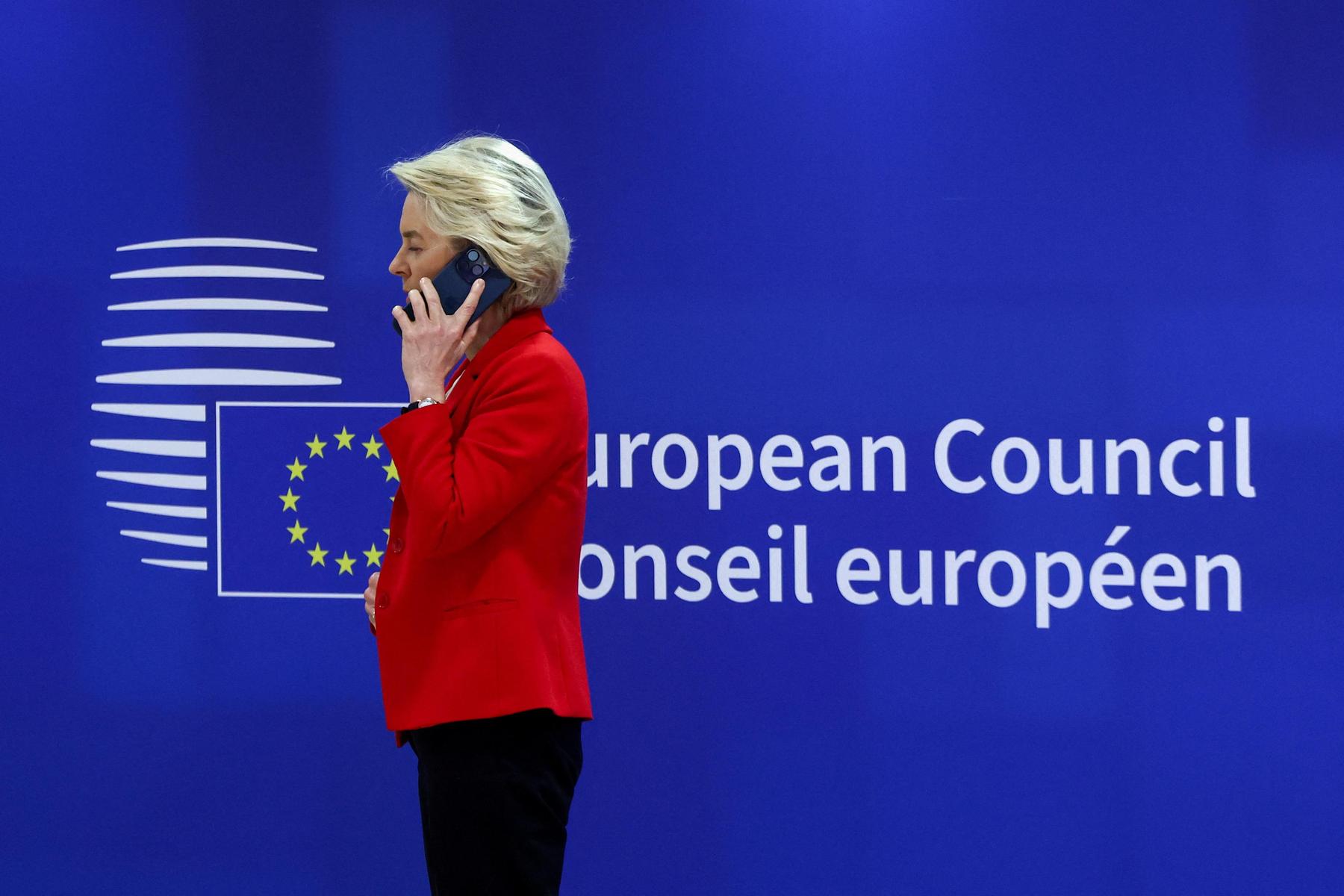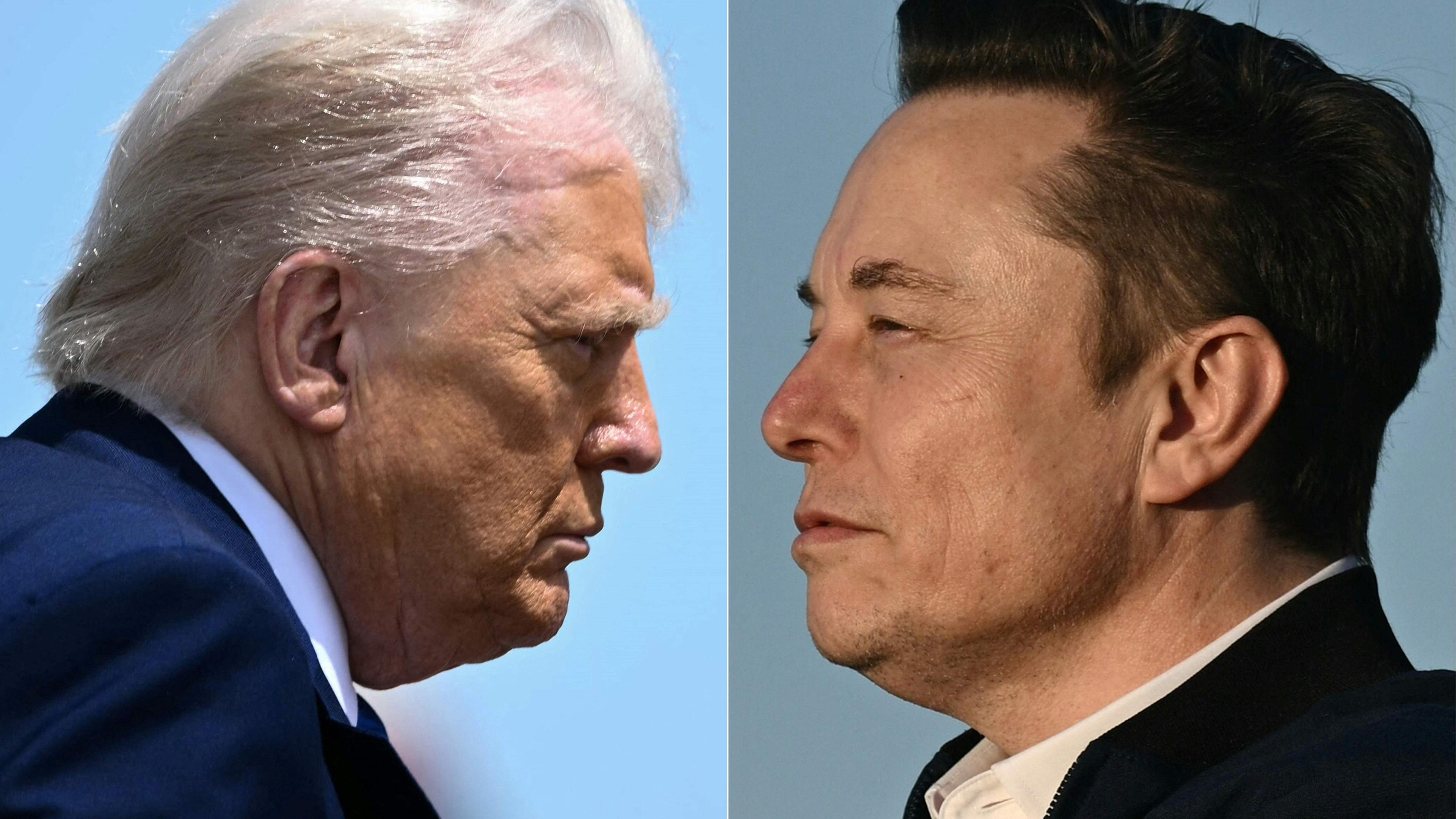EU has Trump’s time bomb ticks – Diepresse.com

Europeans could react to the new US customs threats with expensive sanctions against the digital industry. In practice, that would be an own goal.
Threaten with tough retribution – or still the common in front of the separating positions? The threat of US President Donald Trump to punish the EU with a flat-rate 50 percent import duty for alleged meanness does the question of the Union’s trading policy strategy. The Union now has six weeks before Trump’s announced, then exposed, renewed last Friday and at the same time increased tariffs on July 9th.
On Sunday Ursula von der Leyenthe President of the European Commission, with Trump. It was a « good call », let the Leyen announced afterwards. What else should she say? « It is positive that there is also commitment at the President’s level, » said her press spokeswoman on Monday. What did the two discuss? What projects will the Commission launched on behalf of the Union of trade policy? « We will not respond to the details of the discussions. Discretion is the secret of negotiations. »
But whether it is negotiations in the actual sense of the word is increasingly doubtful. Because the approaches on both sides of the Atlantic run into opposite directions. The commission has represented Trump’s point of view since the beginning of Trump’s trading policy. « Zero for zero is still on the table. That would be a very good starting point for negotiations, » said Olof Gill, spokesman for the commission spokesman for trade policy.
Calm instead of sexy
Zero for zero means: If one of the two sides does not collect any customs on a product, the other should not do so. The bottom line is that the abolition of all tariffs between the United States and the EU. You are not far from this ideal state. For months, the Commission has been pointing out that the weighted average customs sets of the EU were 1.2 percent on imports from the United States in 2023, those of the United States on goods from the Union 1.4 percent.
However, this factual situation does not shook the fixed idea of Trump’s, according to which the US deficit is an expression of European hostility in the trade balance compared to the EU. « Trump’s contempt for the EU is generally known. He seems to be honest that the US trade deficit is that something sinister is going (what it doesn’t), » said Agathe Demarais, an expert in business diplomacy at the European Council on Foreign Relations, in an analysis on Bluesky.
As is well known, Trump is not tired of assuming the EU that it was only founded in order to exploit the United States in terms of trade policy. The fact that Washington was at the cradle of the European unification project after the Second World War and did this out of the declared self -interest to build a sales market for American goods from the destroyed continent.
In addition, the former French business diplomat Demarais points out, the calm persistence of Europeans brings Trump onto the palm. « Trump’s demands also seem to reflect a deep frustration about the professional, calm and bureaucratic access of the EU for negotiations, » she says. This stands in the way of « rapidly sexy -looking deals that mean nothing ». Washington’s latest unification with the British government is one of such a joke, according to Demarais.
The citizen pays the colliery
So what could Trump want from the Europeans in order not to ignite the customs bomb on July 9th? It is conceivable that he calls for a clear move of the Europeans of China. The EU would bring this into a dilemma, because its economic interdependency is known and dependent on the People’s Republic. More purchases of liquid gas and weapons from the USA are also conceivable. But it would be really tricky if Trump openly demands that the Union rebuild its VAT system according to its will. For inexplicable reasons, he sees the fact that there are VAT in Europe than a direct affront to the United States.
Member States are currently advising on a list of possible counter-tariffs on US imports worth a little less than 100 billion euros, which the Commission has created. She would come into force a few days after July 9th. However, their effectiveness is questionable. It would be more painful if the Commission would draw all legal registers to sanction digital services from the USA. For example, it could question the internal market approval for cloud services, such as Amazon and Google.
However, that should remain a hypothetical countermeasure. Because Europe depends enormously on cloud computer services on the US companies. A cloud initiative launched by the Commission in 2016 did not change that. A public consultation of the Commission is currently on a new attempt in this matter.
Either way, the EU’s tariffs would be passed on to US services and goods to the citizens as end consumers, warns Demarais: « They would only drive inflation and pour oil into the fire. »







/s3/static.nrc.nl/wp-content/uploads/2025/06/06205808/web-0606BINspermadonatie.jpg)